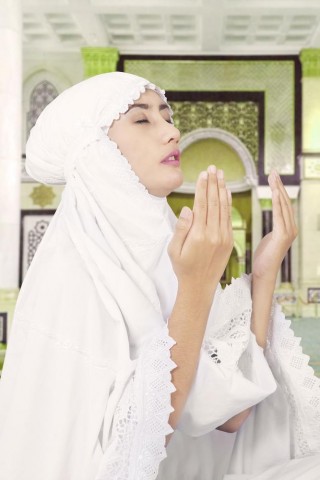
You could tell the press really, really hated it when they had to admit that the shooter was so truly, pathetically, deranged that no ideology could be burdened with his actions.
When the terrible story broke that three lively, bright Muslim students had been killed at Chapel Hill, one of the first things I read on social media was a rueful, “this is tragic but an atheist did it! Can’t blame a Tea Partier for this one!”
I watched from the sidelines as a lively discussion ensued: some people, astonishingly, seem to have committed to memory all of the occasions upon which deranged actions were attributed to Christians or conservatives but turned out to be the work of, you know, some extreme category of “liberal.” Others managed to remember every Christian/Conservative bad-guy they’d ever heard of.
Because there must always be an ideology to blame. Or a religion. Or a philosophy.
And yes, sometimes, that’s exactly the case; whether or not we like to admit it, sometimes people of faith (or of their faith in no-faith) will commingle their theological feelings with their ideologies, add a dash of their standard-issue human faults (racism, xenophobia) and do reprehensible things.
We are being told right now that these beautiful young people were slaughtered over a man obsessed with a parking space, but there is a preponderance of evidence — based on his internet writings — that he had an issue with religious people. We’re being told, “no, that’s not it, it’s the parking space…”
Had the shooter been a Christian (or a Jew or a Mormon) who floated hateful ideas and memes on Facebook, does anyone imagine that a parking space theory would be seriously entertained by anyone? As I wrote yesterday, in my red-faced rant,
. . .“even if” a running grudge over a parking space existed, there is enough evidence to suggest that a “running grudge” against religion was the catalyst that permitted this man to feel entitled to execute three people.”
Parking space, shmarking space; supposedly he argued with many neighbors about parking spaces, but let’s face it: he killed the religious people.
He killed the people who literally wear their religion on their sleeves (or heads), and that has to count for something. For better or worse, as atheist writer Sincere Kirabo argues, it factors into the equation.
There appears to be an effort — a really strong effort — in the press to underplay the religious (or anti-religious) notes to this story, probably because the shooter doesn’t fit a preferred template of “established” monsters, i.e., those krazy konservative kristians! Or those young urban men.
No, this shooter is a middle-aged white man who seems to have some anti-social tendencies and a hatred for religion. Off-the-template.
What has struck me, though, is how every ideology, every group, every religion or philosophy, is having a turn in the crucible of blame; every group is getting a chance to say, “this is a tragic story, but don’t blame…”
I bring this up with malice toward no one: it’s just an observation I’ve made today, because my computer has been useless for writing, so I was able to spend time reading reactions, particularly here in Patheos, where Muslim and Atheist writers have been on the story, trying to process it from their perspectives, and Patheos has been making them easy to find. I urge you to take a look.
Everyone is strongly united in condemning these murders — how can you look at the pictures of this close, loving family and not be moved?
One atheist opens his piece thusly: it didn’t take long for “new atheists” to be at the forefront of blame for the Chapel Hill shooting that is making headline news this morning.
To which some Christian and Muslim readers perhaps thought to themselves, “yeah, welcome to the club.”
Lots of atheist contributors are horrified and willing to at least consider that the shooter’s atheism is relevant to the story. Godlness in Dixie’s Neil Carter writes:
. . .while I don’t identify with Craig Hicks’s murderous actions, at some level I must take ownership of what he has done because he identifies with my community.
Do check out the page, where there are also perspectives from other channels, as well.
Here’s the thought I want to throw into the mix, though: Something tragic has happened, and now a group is saying, “but…don’t blame atheism; don’t blame all atheists…”
And we ought not. But with this story, the “new atheists” now have a means of identifying with people of faith in a way they have not, before. When bad stories involving Muslims arise, our Muslim friends say, “this is terrible, but don’t blame Isalm, this is not the Islam I know.”
And when Christians do horrid things, we will say, “this is terrible, but don’t blame Christianity; this has nothing to do with the Christ I know.”
In both cases, Christians and Muslims who are honest will, after denouncing a violent or shameful act, spend some time thinking about how and where their theologies have become tainted by too dear a grasp of ideology, and what a combustible and destructive mix that is.
Now, the atheists are having a turn in that crucible. They’re getting a taste of the fire that either helps to purge the infection of ideology from their theology (or, anti-theology) or destroys every bit of it.
And to my mind that is an opportunity, amid all of this grief. If everyone gets a turn having to defend what they believe, while also having to engage in a measure of self-examination about it — because no one is truly innocent — can’t we hope that that sort of shared experience might create a bit of space for trust, rather than suspicion; room for the benefit of a doubt, rather than kneejerk reactions, fast and dismissive?
I like what Kyle Cupp wrote yesterday, in pondering his newborn son:
As we grow out of childhood, we become less dependent on others and more self-reliant, but this independence has a price. We lose sight of our shared dependency and our mutual responsibility. Our common humanity becomes an excuse for ruthless competition rather than generous collaboration.
Lately, when I’ve rocked my son in my arms, I’ve wondered whether love could be the principle governing everything we do individually and collectively.
That would bring about a great change in the world and the human race, but love is rarely jumped to from nowhere — certainly not from distrust and ignorance. To get to love, you have to start from somewhere else.
Maybe with real, not mandated, tolerance?
Bear with me. “Tolerance” is a word I have come to despise, because it has been re-defined to mean so much more than simply living and letting the other guy live.
But I think something like real tolerance is formed when experience is shared. Having your beliefs put on trial for the actions of a single person or an extreme gang is a miserable experience. Perhaps, though, one that might forge a bit of authentic tolerance, down the road, when the next, inevitable, human tragedy comes.
And authentic tolerance, could — theoretically — lead to something closer to the ideal of love we all say we would like to see. And then, what a legacy left by these three young people. What a case of good coming out of evil.
I could go into a whole theological thing about shared sin, but that’s enough I’ll let Dilshad Ali have the last word — because the one most deeply grieving has that sad privilege — as she turns the focus back on to Deah, Yusor and Razan:
We hold on to Deah, Yusor and Razan. To who they were, how they lived their lives and all they did in the short span they had on this earth. We take inspiration in who they were, in how they walked through life as good humans dedicated to service, friendship, faith and family, among so many other admirable things. We take comfort in all the wonderful things being said about them. Said one friend who knew them in college: “These kids are the ones you pray your children will grow up to be.” […]
Said Farris Barakat, brother of Deah, at a vigil held at UNC-Chapel Hill last night:. . .I plead that you live in their legacy, that you share the good that you know of them, and take the message that my mom wanted to make public, and do not fight fire with fire…. We’ve lost three great citizens of this world, of this country. But, I think they’ve inspired thousands.
This is where we begin. This is what we grieve. This is what we take comfort in. This is what we hold on to. This is how we lift our heads up, vow to continuing living a good life and affect change.
Inna lilahi wa inna ilayhi raji’oon. Surely we belong to God and to Him we return.
Related:
Feeling like the “forever other”












